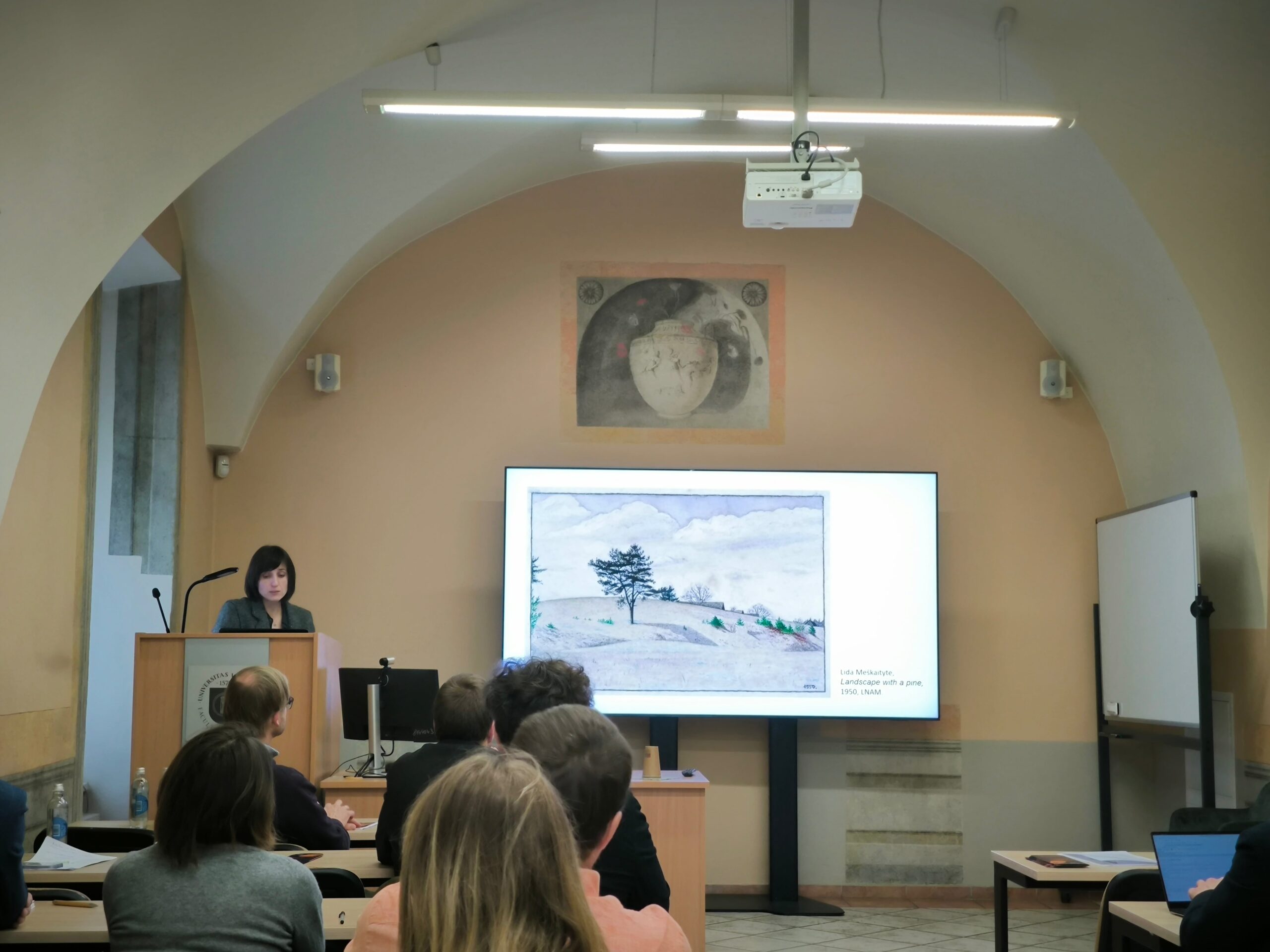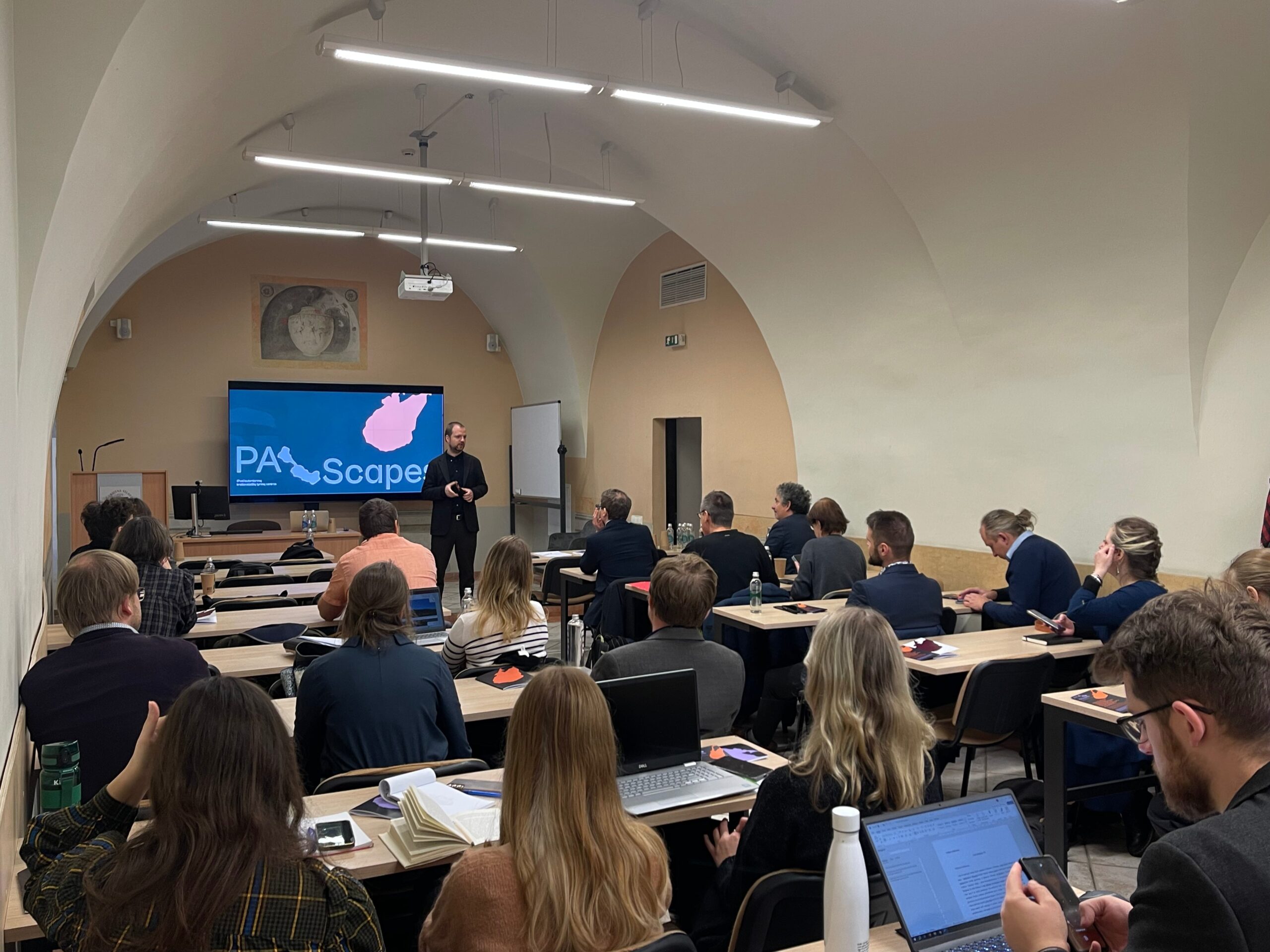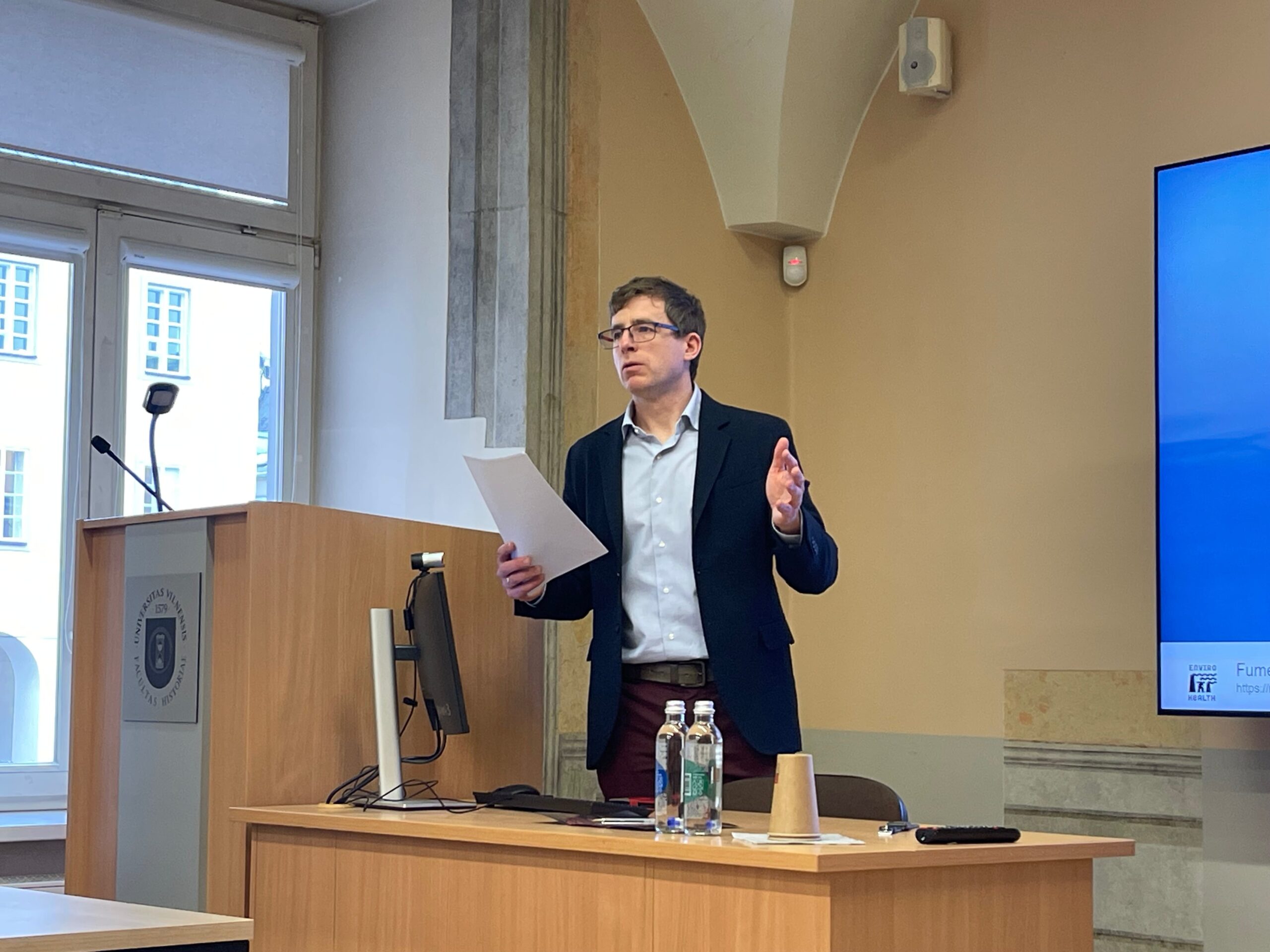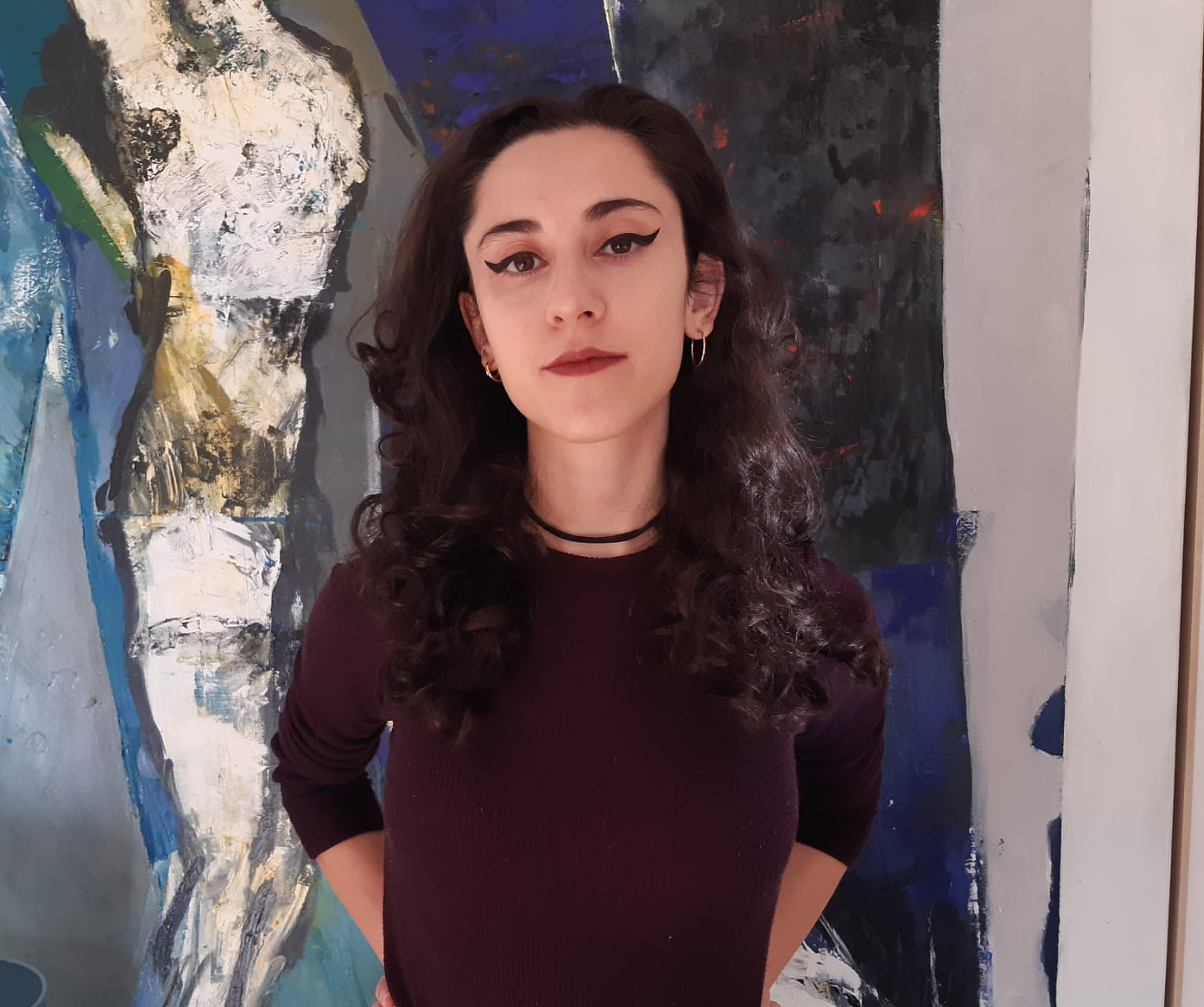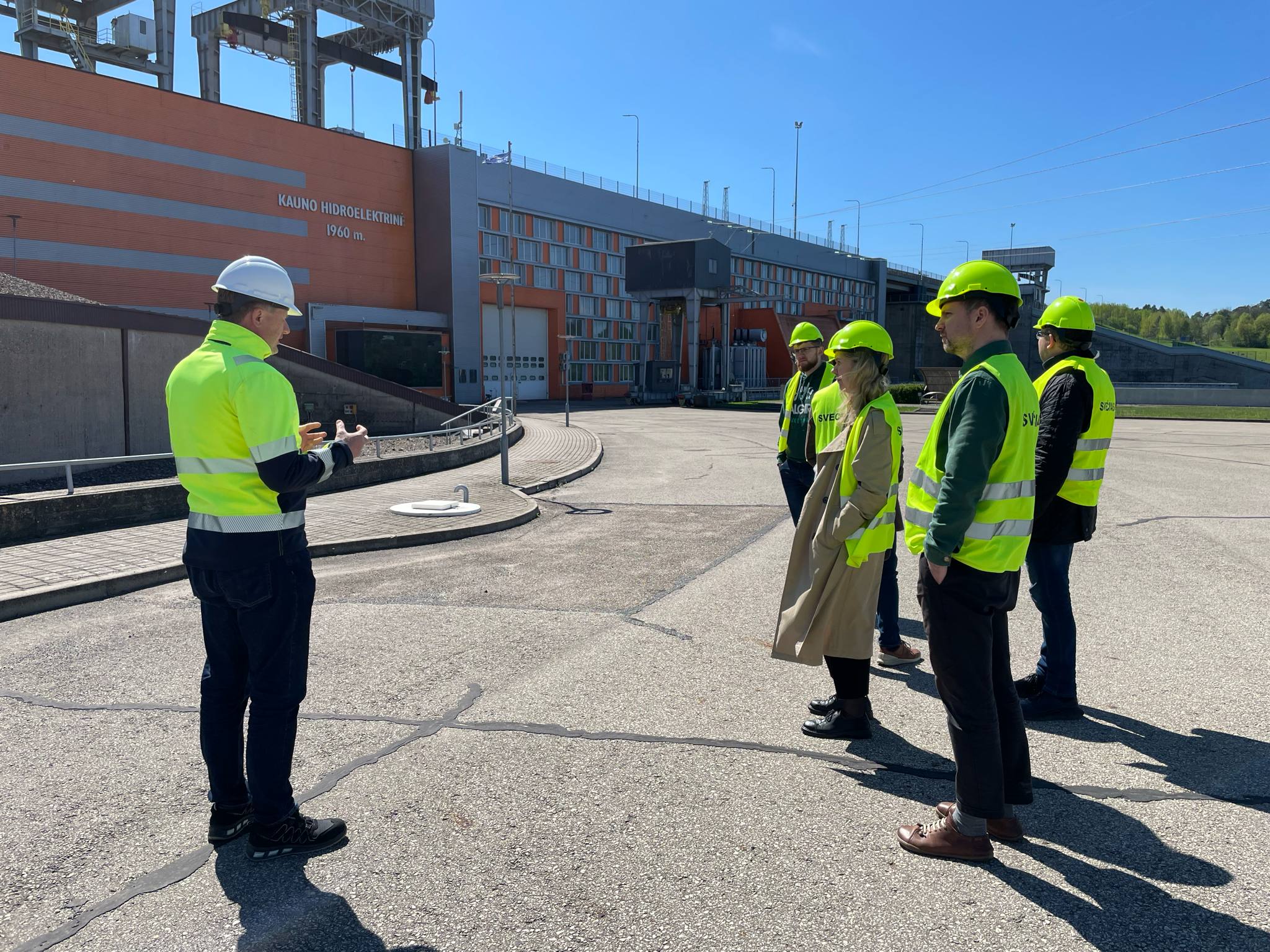PAScapes, the (Post)Authoritarian Landscapes Research Centre, held its first international conference, New Cultural Landscape Interpretations: Perspectives from Geography and History, on the 21st of November at the Faculty of History of Vilnius University, bringing together scholars from different disciplines who study cultural landscapes.The ten speakers, who presented their research objects, methods and approaches, perfectly reflected the organisers’ ambition. The relatively new contemporary field of landscape research in Lithuania should acquire clearer contours, and both the presentations and the accompanying discussions highlighted the diversity, perspectives and issues of this field.
The opening of the conference by historian Marc Elie transported the audience to eastern Kazakhstan. The scholar, who studies the ecological and air pollution problems of the Soviet era in the region, raised the issue that, until now, there has been a tendency to analyse similar topics in universal terms, confining the analysis to general trends and neglecting its impact on individual communities, reactions and responses. He said it was important to look back to the medium-sized cities of the USSR, where, according to Elie, air pollution had the greatest impact on the population, such as Oskemen, which was presented in more detail at the conference.
In the first session, geographer Anita Zarina presented the path dependence method, which is relatively rare in landscape transformation studies, and its application to the study of swamp drainage processes in Latvia. The second speaker, geographer Guillaume Laquement, presented an intriguing study focusing on the Spanish refugee camp set up on the Balearic coast (Argelès-sur-Mer) before the Second World War, and more specifically on the transformation of the area, analysed by applying micro-geographical and cartographic approaches. The session was closed by sociologist Siarhei Liubimau, who gave a presentation on the role of spatial notions in the anticipated process of the Baltic States’ disintegration from the post-Soviet energy system (BRELL).
The second session started with Lake Seliger, a Soviet-era tourist paradise yet polluted by local industry. Using this case study, historian Laurent Coumel looked at the general trends of green policies within the USSR. Meanwhile, a slightly different approach was expressed by historian Rugilė Roženė. After briefly discussing the perspectives and problems of an ecosocial approach to the study of authoritarian landscapes, she presented the relationship and interaction between humans and the space subjected to transformations dictated from above – the story of the artist Lidija Meškaitytė and the landscape of the village of Antsvenčiai, which she captured in her works. Camilie Robert-Boeuf, geographer and postdoctoral fellow at the PAScapes Centre, also spoke about the human relationship with the environment. She reflected on her research about collective gardens in the Kazan region, presented methodological challenges and plans for future work, which were prompted by new insights.
Opening the third session, Eda Muco, another postdoctoral fellow of PAScapes, introduced participants to the processes of community management of rural landscapes in Albania (the only post-Soviet country without land restitution), studied through the lens of territorial and social capital. This was followed by a presentation by Jurajus Lieskovsky on traditional agro-cultural landscapes in Slovakia. Finally, Darijus Veteikis, a representative of the PAScapes team of geographers, presented an ongoing research project aiming to identify the sequences of change in the Lithuanian landscape in the Soviet and post-Soviet periods.
Review by Agnė Kereišiūtė
